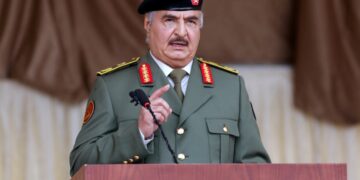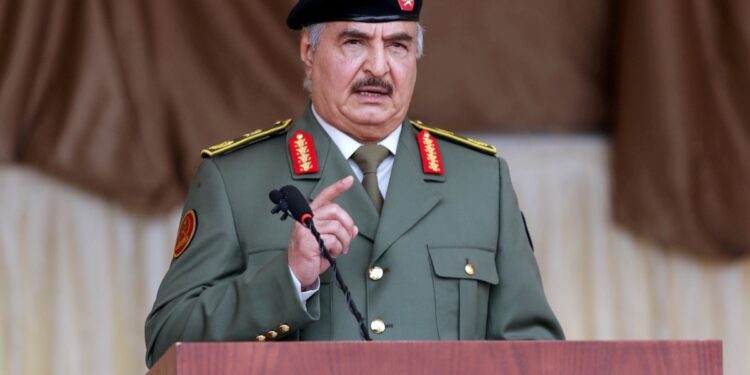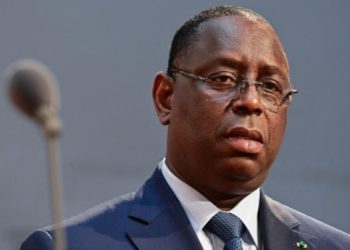By Emmanuel Nduka
Libya’s powerful Commander, Khalifa Hifter who controls the self-styled Libyan Arab Armed Forces, on Tuesday announced himself as a candidate in the country’s Presidential elections next month.
Hifter submitted his candidacy papers in the eastern city of Benghazi and announced the move in a video in which he said he is seeking the country’s highest post to “lead our people in a fateful stage.”
The Commander thus called on Libyan people to vote “with the highest levels of awareness and responsibility” so the nation can begin rebuilding and reconciliation after a decade of chaos and civil war.
Libya has been rocked by chaos since a NATO-backed uprising toppled long-time dictator, Muammar Gadhafi in 2011. The oil-rich nation had for years been split between a government in the east, backed by Hifter, and a UN-supported administration in Tripoli, aided by west-based Libyan militias. Each side has also had the support of mercenaries from countries such as Russia and Syria and different regional powers.
Hifter had delegated his military duties in September to his Chief of Staff, Abdel-Razek al-Nadhouri to meet up with his political ambition.
Hifter’s announcement comes after Gadhafi’s son, Seif al-Islam Gadhafi, submitted candidacy papers over the weekend in the southern town of Sabha.
In his video comments, Hifter said that if elected, he would prioritize defending Libya’s “integrity and sovereignty.”
Hifter’s prominence rose as his forces battled extremists and other rival factions across eastern and later southern Libya, areas now under his control. He has the support of Egypt and the United Arab Emirates, as well as France and Russia.
If accepted, both Hifter and Seif al-Islam would be among front-runners in the December 24 vote. Their candidacy has stirred controversy in western Libya and the capital of Tripoli, the stronghold of their opponents, mostly Islamists.
Politicians and militia leaders have already expressed their rejection of their candidacies and demanded laws governing the presidential and parliamentary elections to be amended.
Under Libya’s elections laws, he would have had to step down from government duties more than three months before an election date.




































